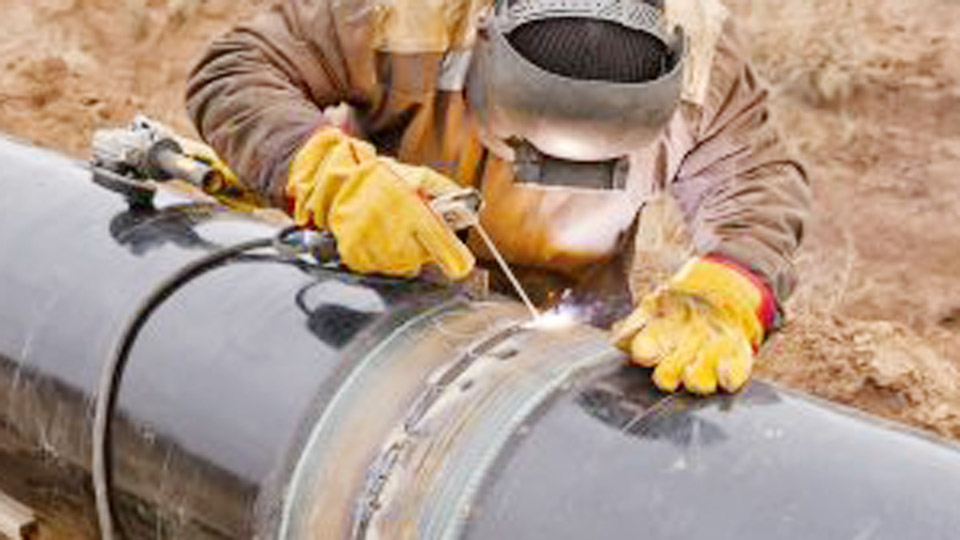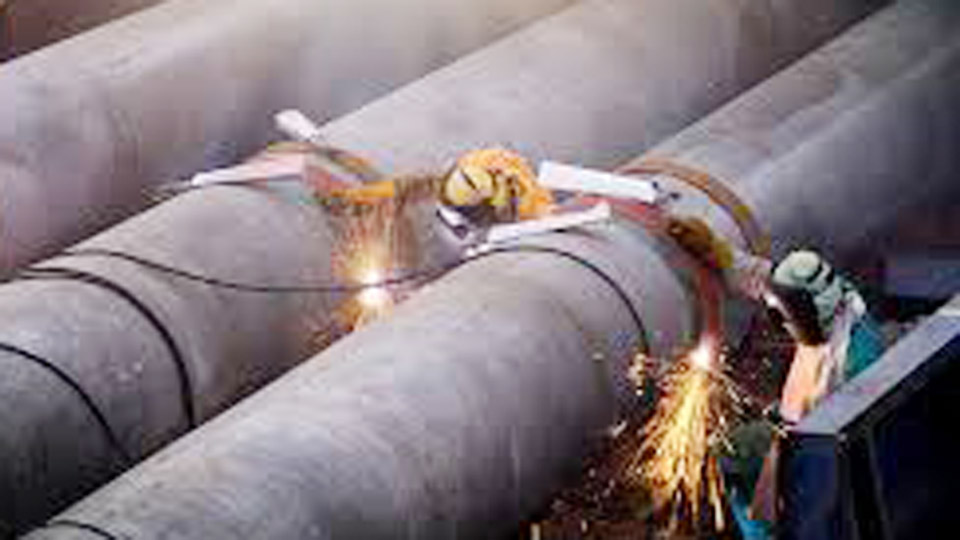When I first got into welding, one of the biggest questions I had was how much I could realistically earn. I remember wondering if the job would truly pay the bills or if I’d be better off in another trade.
The truth is, welder salaries can vary a lot depending on where you live and work. In fact, the difference between states is sometimes surprising.

Image by virtualcounselor
If you’re thinking about becoming a welder or you’re already one and wondering whether you’re getting paid fairly, you’re in the right place.
I’ve spent time digging into the numbers, talking to other welders, and even looking at job postings to get a clear idea of what the average welder salary looks like across the U.S.
This guide breaks it all down for you—from the high-paying states to the ones where the pay may not go as far, and everything in between.
Let’s take a closer look at how welding wages really stack up by state and what factors influence your earning potential in this solid, hands-on career.
Why Welder Salaries Vary So Much Across the USA
Before jumping into the numbers, it’s important to understand why welders in one state might earn way more than in another. It’s not random—it usually comes down to a few things.
Cost of Living: States with higher living costs usually pay more, but that doesn’t always mean you take more home at the end of the month.
Industry Demand: Some states have booming industries like oil and gas, shipbuilding, aerospace, or construction that need skilled welders all the time.
Experience and Certification: A certified welder with years of experience in TIG or underwater welding is going to earn more than someone just starting out.
Union vs Non-Union: Union welders often get better pay and benefits, depending on the project and location.
Let’s move into the real numbers. Below is a detailed breakdown of average welder salaries by state, based on general industry data and field experience.
Average Welder Salary by State in the USA
This table gives you a bird’s eye view of what welders are earning in different states. Keep in mind these are averages. Depending on your skill level, certifications, and where you’re working, your pay could be higher or lower.
| State | Average Annual Salary | Average Hourly Wage |
|---|---|---|
| Alaska | $65,000 | $31.25 |
| Hawaii | $62,000 | $29.81 |
| Wyoming | $58,000 | $27.88 |
| North Dakota | $56,500 | $27.16 |
| California | $55,000 | $26.44 |
| Washington | $54,500 | $26.20 |
| Texas | $53,000 | $25.48 |
| Louisiana | $52,000 | $25.00 |
| New Mexico | $51,500 | $24.76 |
| Colorado | $50,000 | $24.04 |
| Illinois | $49,000 | $23.56 |
| Pennsylvania | $48,500 | $23.32 |
| Georgia | $47,500 | $22.83 |
| Florida | $46,000 | $22.12 |
| Michigan | $45,500 | $21.88 |
| Ohio | $45,000 | $21.63 |
| Missouri | $44,500 | $21.39 |
| North Carolina | $44,000 | $21.15 |
| Tennessee | $43,500 | $20.91 |
| Indiana | $43,000 | $20.67 |
| Kentucky | $42,500 | $20.43 |
| Arizona | $42,000 | $20.19 |
| Alabama | $41,500 | $19.95 |
| Mississippi | $41,000 | $19.71 |
| South Carolina | $40,500 | $19.47 |
| Nevada | $40,000 | $19.23 |
| Arkansas | $39,500 | $18.98 |
| Kansas | $39,000 | $18.74 |
| Oklahoma | $38,500 | $18.50 |
| Iowa | $38,000 | $18.25 |
| Nebraska | $37,500 | $18.01 |
| West Virginia | $37,000 | $17.77 |
| Maine | $36,500 | $17.53 |
| Vermont | $36,000 | $17.28 |
| New Hampshire | $35,500 | $17.04 |
| Wisconsin | $35,000 | $16.80 |
| Minnesota | $34,500 | $16.56 |
| South Dakota | $34,000 | $16.32 |
| Montana | $33,500 | $16.08 |
| Rhode Island | $33,000 | $15.84 |
| Massachusetts | $32,500 | $15.60 |
| New York | $32,000 | $15.36 |
| Connecticut | $31,500 | $15.12 |
| New Jersey | $31,000 | $14.88 |
| Delaware | $30,500 | $14.64 |
| Maryland | $30,000 | $14.40 |
| Virginia | $29,500 | $14.16 |
As you can see, there’s a significant gap between the top and bottom earners. States like Alaska, Hawaii, and Wyoming offer some of the highest welder salaries in the country. On the flip side, states along the East Coast and Midwest tend to pay less, on average.
Top Paying States for Welders
Let’s talk a little more about the top-paying states and why they rank high.
Alaska
Welders in Alaska often work in remote locations or in the oil and gas industry. Conditions can be harsh, but the pay reflects the difficulty and isolation. Many welding jobs are rotational—two weeks on, two weeks off.
Hawaii
Tourism and construction drive demand in Hawaii, especially for infrastructure projects. While it’s a beautiful place to work, the cost of living is also one of the highest.
Wyoming and North Dakota
Both of these states are heavily involved in the energy sector. Oil rigs, pipelines, and industrial facilities are always in need of skilled welders, often at short notice.
California and Washington
Tech, shipyards, aerospace, and commercial construction help drive wages up. There’s also a strong union presence in certain areas, especially around Los Angeles and Seattle.
States with Competitive Opportunities for New Welders
If you’re just starting out, it might make sense to work in states where the pay is decent, but the cost of living isn’t too high.
- Texas has a huge demand for welders across industries.
- Georgia and Florida offer good opportunities with room to grow.
- Pennsylvania has a solid manufacturing base that still needs skilled trades.
Industries That Affect Welder Pay
Where you work matters just as much as where you live. Some industries pay more because the work is riskier, requires precision, or involves travel.
- Oil and Gas: Usually the best pay, especially for pipeline or rig welding.
- Shipbuilding: Great pay in coastal states but requires certifications.
- Construction: Steady pay, especially in big cities or union jobs.
- Automotive and Aerospace: High precision, high responsibility.
- Manufacturing: Reliable but might offer lower starting wages.
If you’re willing to travel or take on challenging environments, you’ll usually get paid more.
Tips to Maximize Your Welding Salary
Want to make more money as a welder? Here’s what’s worked for me and many others.
- Get Certified: AWS, ASME, or underwater welding certifications open more doors.
- Specialize: TIG, MIG, pipe welding, or underwater welding often pay more than general fabrication.
- Travel: Willing to move or work out of state? That flexibility can increase your pay.
- Union Jobs: If you can get into a good union, the pay and benefits are hard to beat.
- Work Overtime: Welders often have the chance to rack up hours during busy seasons.
How Cost of Living Impacts Take-Home Pay
High salaries might look good on paper, but they don’t always mean you’ll have more money in your pocket. Let’s compare two states:
- Alaska: $65,000 salary, but groceries and rent are higher.
- Texas: $53,000 salary, but lower taxes and cost of living.
Sometimes a lower-paying job in a cheaper state means you keep more of your money. Always weigh income against expenses when making career moves.
Conclusion
So, what is the average welder salary by state in the USA? Well, it really depends on where you are, what industry you’re in, and how much experience you have.
Welders in Alaska, Hawaii, and energy-rich states tend to earn the most. Meanwhile, some states offer lower wages but a more affordable lifestyle.
Welding is a solid career path with room to grow. If you’re willing to keep learning, move around if needed, and work hard, it’s definitely a job that can support you and your family.
I’ve met welders who travel the country making six figures, and others who are perfectly content running a small fabrication shop in their hometown. There’s no one-size-fits-all approach, and that’s the beauty of it.
Frequently Asked Questions
What is the highest paying welding job in the USA?
Pipeline welding, underwater welding, and nuclear welding are among the highest paying. Some earn over $100,000 a year with experience and certifications.
Do welders make good money in Texas?
Yes, welders in Texas earn competitive wages, especially in oil and gas. The average salary is around $53,000, and the cost of living is reasonable.
Which states pay welders the least?
States like Virginia, Maryland, and Delaware tend to have lower average salaries for welders, often under $31,000 per year.
Can welding be a six-figure job?
Absolutely. With the right certifications, willingness to travel, and overtime hours, many welders hit or exceed six figures.
Is it worth moving states for a welding job?
It can be, especially if the new location offers higher wages, better benefits, or specialized work that matches your skills.
What welding certifications boost salary?
Certifications from the American Welding Society (AWS), underwater welding credentials, and pipe welding qualifications usually lead to better-paying jobs.


